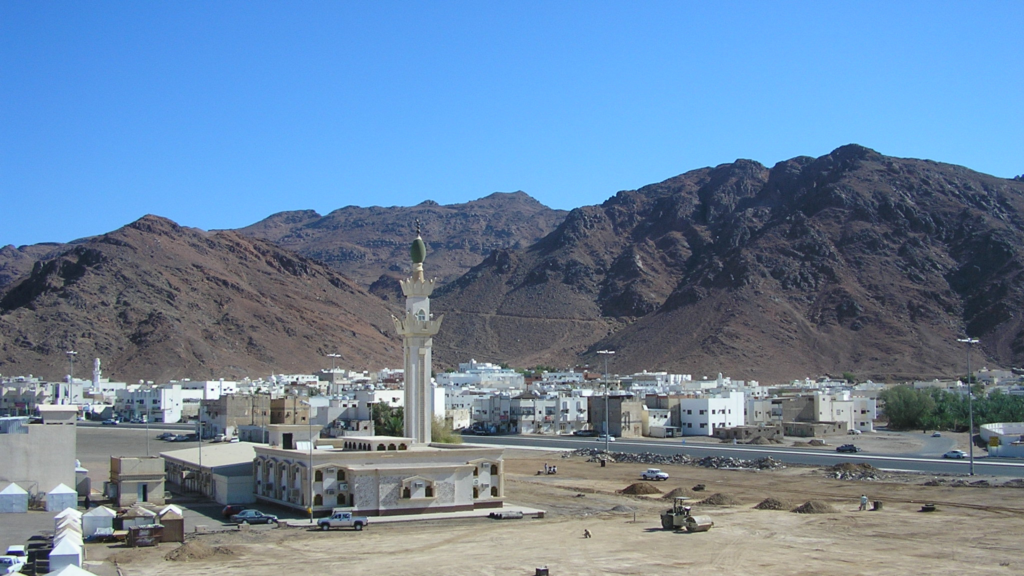
Mountain Uhud
Mount Uhud is a famous mountain located just north of Madinah, Saudi Arabia. It holds immense historical and spiritual significance in Islam, as it is the site of the Battle of Uhud (3 AH), one of the most important events in Islamic history. The battle was fought between the Muslims, led by Prophet Muhammad (peace be upon him), and the forces of Quraysh.
The battle resulted in a heavy loss for the Muslims, and it was here that the Prophet’s uncle, Hamza ibn Abdul Muttalib, was martyred. Mount Uhud is also known as the Mountain of Martyrs due to the number of Muslim martyrs who were buried there, including Hamza and many of the Prophet’s companions.
Today, Mount Uhud stands as a symbol of sacrifice, courage, and the trials faced by early Muslims in their struggle for faith. Pilgrims visiting Madinah often come to Mount Uhud to pay their respects to the martyrs and reflect on the lessons of perseverance and faith in the face of adversity.
Mount Uhud is often cited for the valuable lessons it teaches about discipline, adherence to guidance, and the repercussions of disobedience. The Prophet’s instructions and the subsequent events on the mountain serve as a source of reflection for Muslims on matters of faith and obedience to divine commands.
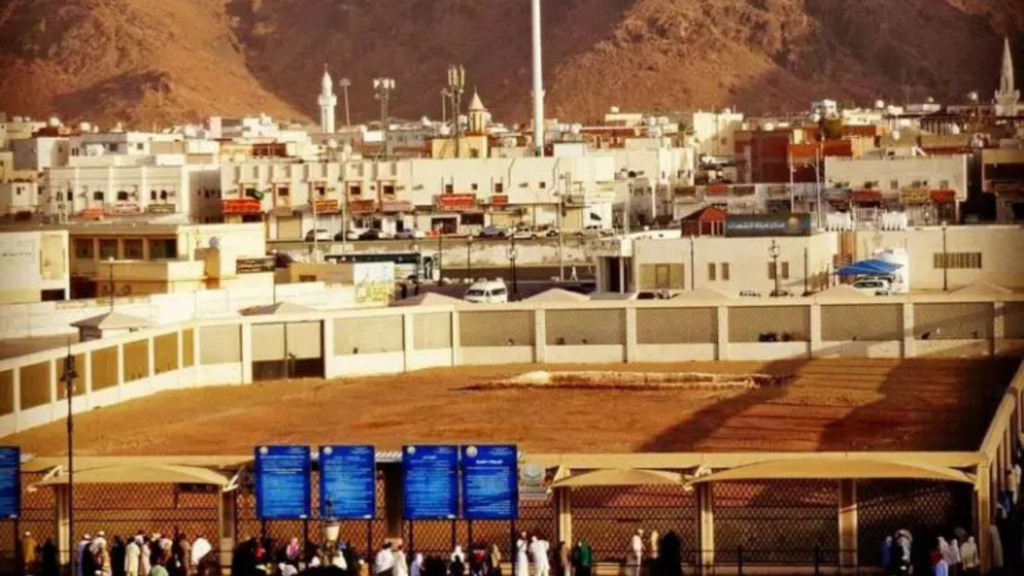
The Uhud Martyrs’ Cemetery
The Uhud Martyrs’ Cemetery (also known as Jannat al-Baqi’ al-Uhud) is a revered burial site located at the foot of Mount Uhud in Madinah, Saudi Arabia. It is the final resting place of several martyrs from the Battle of Uhud (3 AH), including Hamza ibn Abdul Muttalib, the beloved uncle of Prophet Muhammad (peace be upon him).
The battle was a defining moment in early Islamic history, and many of the martyrs here gave their lives in defense of Islam. Their sacrifice is remembered and honored by Muslims worldwide. The cemetery also contains the graves of other companions of the Prophet (PBUH), making it a sacred site for reflection and respect.
Today, pilgrims visit the Uhud Martyrs’ Cemetery to pay their respects, pray for the martyrs, and reflect on the courage and devotion shown by those who fought alongside the Prophet Muhammad (PBUH) in the early days of Islam.
The cemetery serves as a place of reflection, reminding visitors of the bravery and endurance of the early Muslim community. It offers an opportunity to honor the martyrs and reflect on the challenges faced by Prophet Muhammad (PBUH) and his companions.
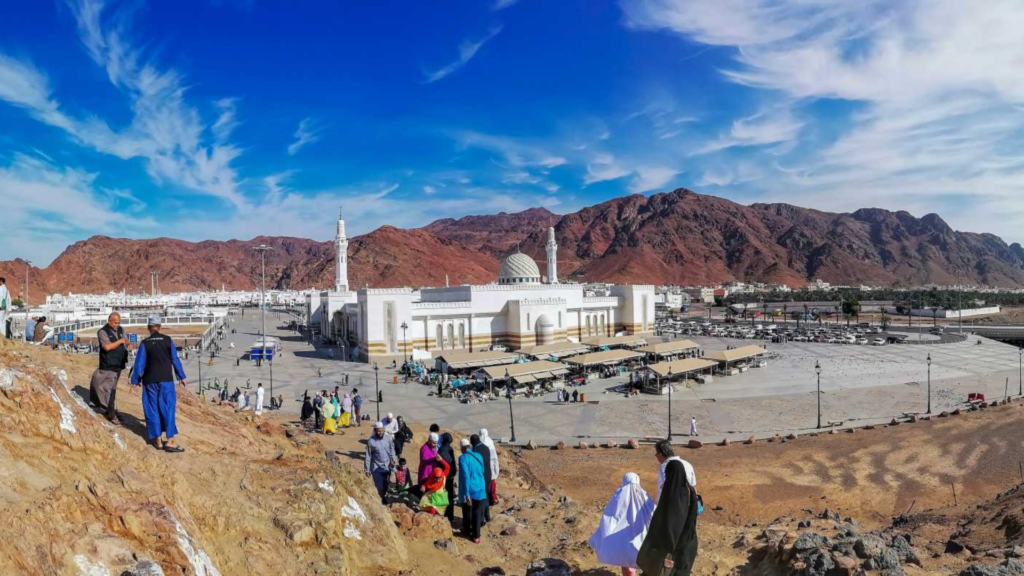
Mountain Rumah
Mountain Rumah is a significant geographical feature located near Madinah, Saudi Arabia. Although not as widely known as other mountains in the region, Mountain Rumah is historically important due to its association with the early battles of Islam, particularly in the context of the Battle of Uhud.
It is believed that Prophet Muhammad (peace be upon him) and his companions passed by or camped near this mountain during their military expeditions. While the exact role of Mountain Rumah in the battles remains less documented, its proximity to significant Islamic historical events adds to its spiritual and cultural importance.
Today, the mountain is visited by pilgrims and history enthusiasts who seek to connect with the early days of Islam and reflect on the trials and sacrifices of the companions of the Prophet (PBUH).
Over 70 companions of the Prophet, including his uncle Hamzah bin Abdul-Muttalib, lost their lives and were buried at the base of Rumah Mountain. Today, visitors, including Muslims, pay respects to the graves of the fallen companions and ascend the mountain to reflect on the historic battlefield.
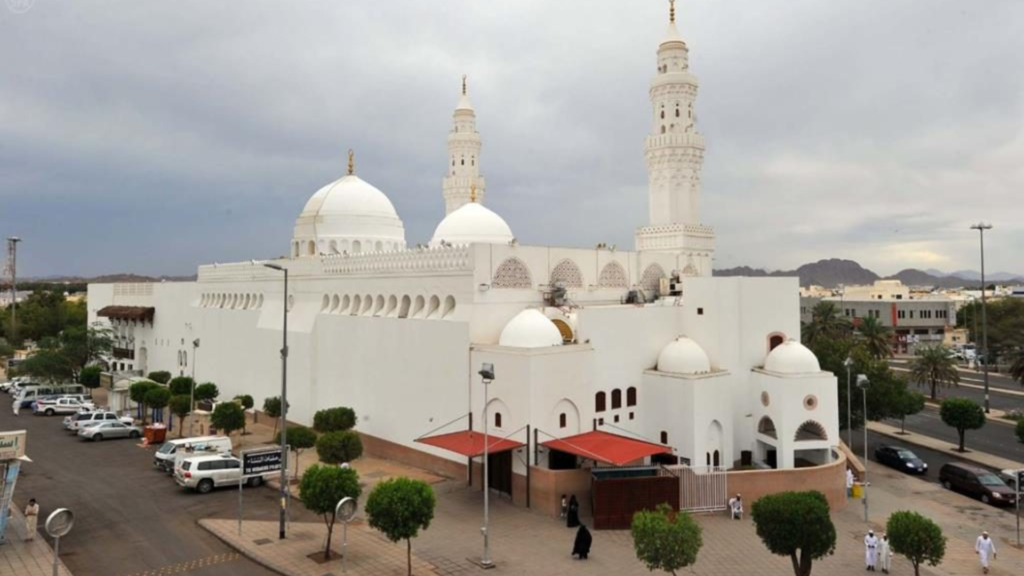
Masjid e Qiblatayn
Masjid e Qiblatayn (The Mosque of Two Qiblas) is a historic mosque located in Madinah, Saudi Arabia. This mosque holds great significance in Islamic history as it is the site where the direction of prayer (qibla) was changed from Jerusalem (Al-Quds) to Makkah (Kaaba).
Initially, the Muslims prayed facing Al-Aqsa Mosque in Jerusalem, but during the time of Prophet Muhammad (peace be upon him), the direction was changed to the Kaaba in Makkah. This momentous event took place while the Prophet (PBUH) and his companions were offering their prayers at Masjid e Qiblatayn, which is why the mosque is named after the two qiblas.
The mosque is located on the outskirts of Madinah and serves as an important site for reflection on this pivotal moment in the history of Islam. Pilgrims and visitors often come here to pray and remember the significance of this change, which symbolizes the unity and direction of the Muslim Ummah towards Makkah.
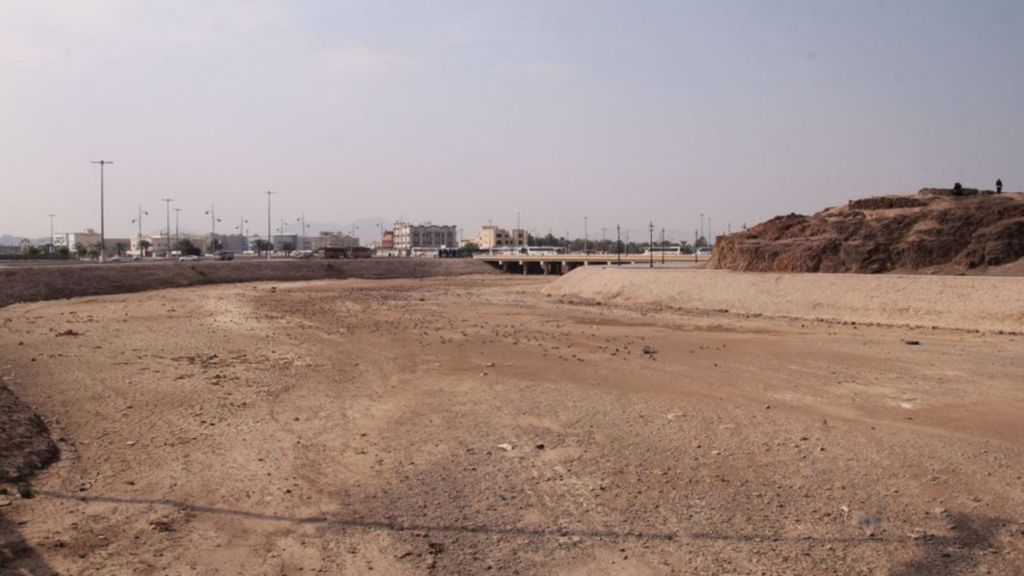
Khandaq Battle Field
Khandaq Battlefield is a historically significant site located near Madinah, Saudi Arabia. It is most famous for being the location of the Battle of the Trench (also known as the Battle of Khandaq) in 5 AH, one of the key battles fought during the time of Prophet Muhammad (peace be upon him).
The battle was a defense of Madinah against a coalition of Quraysh and other tribes who had laid siege to the city. In response, the Prophet (PBUH) and his companions dug a trench around the city, a tactic that was unfamiliar to the Arabs at the time but proved effective in protecting the Muslims. The battle ended in a victory for the Muslims, despite the siege lasting for several weeks.
The Khandaq Battlefield represents perseverance, strategic thinking, and the unity of the Muslim community. Today, the site serves as a place of reflection, reminding visitors of the trials faced by early Muslims and the strength of their faith in the face of adversity.
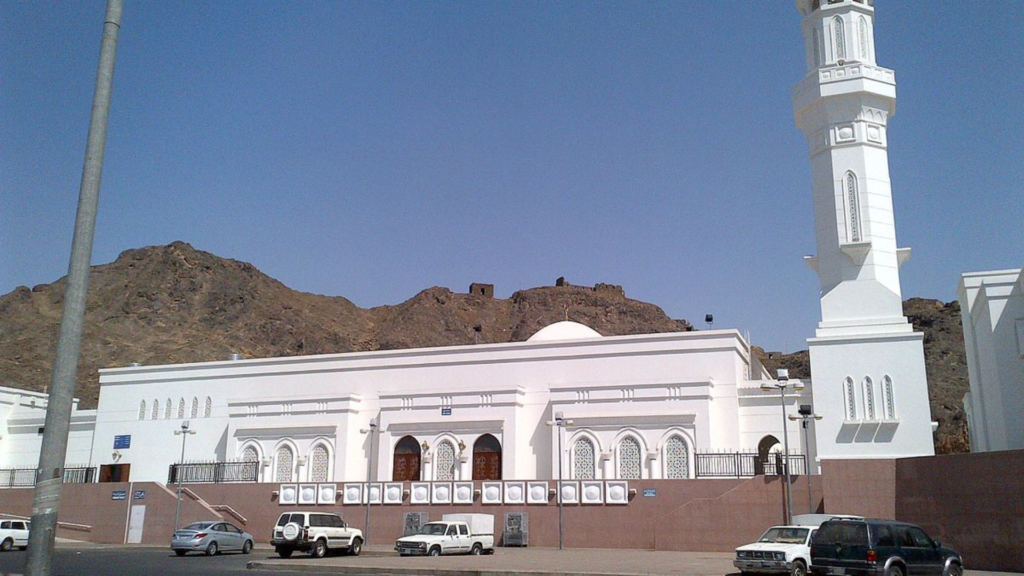
Saba Masajid
Saba Masajid, or the Seven Mosques, is a group of historical mosques located near Madinah, Saudi Arabia. These mosques are associated with the early days of Islam and are significant for pilgrims visiting the city. They are believed to be built in the location where the Battle of the Trench (Khandaq) took place, where the Prophet Muhammad (peace be upon him) and his companions defended the city against a siege.
Each mosque holds spiritual and historical significance, commemorating key moments of the early Islamic community, including prayers and events that marked the struggle and success of the Prophet’s (PBUH) companions.
Today, these mosques are important sites for reflection and prayer, attracting pilgrims who wish to connect with the early history of Islam and pay their respects to the sacrifices made by the Prophet’s companions.
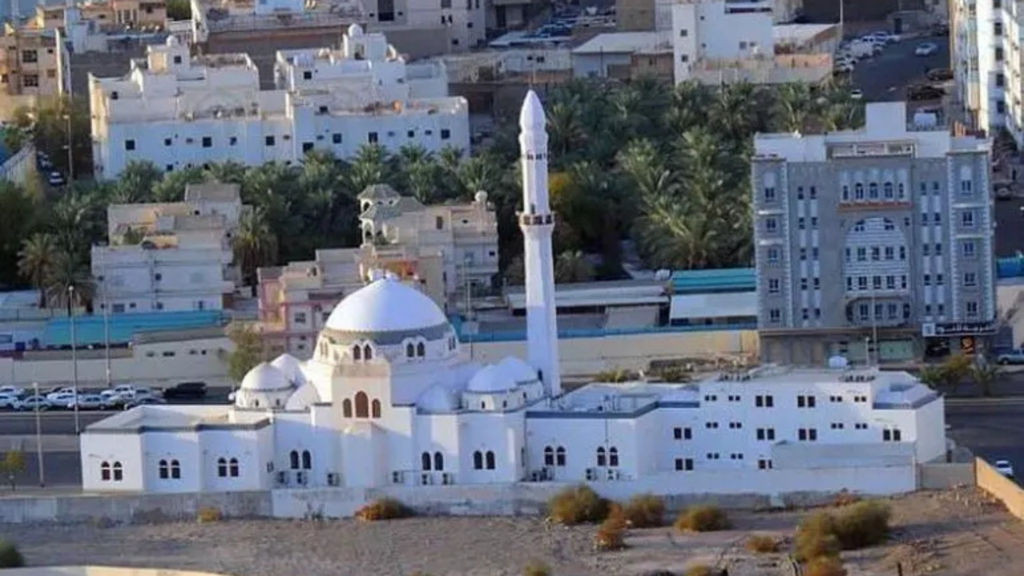
Masjid E Jummah
Masjid e Jummah is a significant mosque located in Madinah, Saudi Arabia. It holds historical importance as the site where Prophet Muhammad (peace be upon him) and his companions performed the first Jumu’ah (Friday) prayer after the migration (Hijrah) to Madinah. This event marks the establishment of Friday congregational prayers, a central practice for Muslims around the world.
The mosque is traditionally believed to have been the location where the Prophet (PBUH) delivered his sermon and led the first Jumu’ah prayer in Madinah, further solidifying the significance of this weekly ritual for the Muslim Ummah.
Masjid e Jummah remains an important place for reflection, prayer, and community gatherings, especially on Fridays, when it draws worshippers who wish to follow the tradition established by the Prophet (PBUH). Visiting this mosque allows Muslims to connect with a key moment in Islamic history and observe the continuity of one of the core practices of Islam.
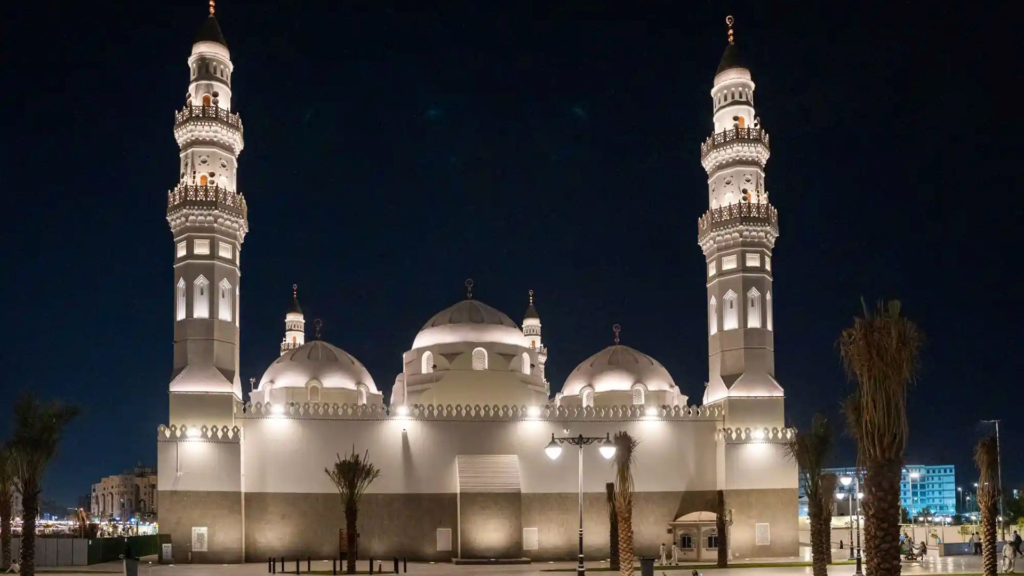
🕌 Masjid Quba
Masjid Quba is one of the most revered mosques in Madinah, Saudi Arabia. It holds great historical significance as the first mosque ever built in the history of Islam. The mosque was constructed by Prophet Muhammad (peace be upon him) and his companions shortly after their migration (Hijrah) from Makkah to Madinah in 622 CE.
The mosque is located in the southern part of Madinah and is a place of great spiritual importance. It is said that Prophet Muhammad (PBUH) personally participated in its construction, and it was the first mosque where he led prayers after arriving in Madinah. Masjid Quba is also unique for being the site of the first Friday prayer held after the Prophet’s arrival.
Visiting Masjid Quba is highly recommended in Islam, as the Prophet (PBUH) stated that praying two Rak’ahs in this mosque brings great reward. Pilgrims and visitors often come to Masjid Quba to pray and reflect on the beginnings of Islam.
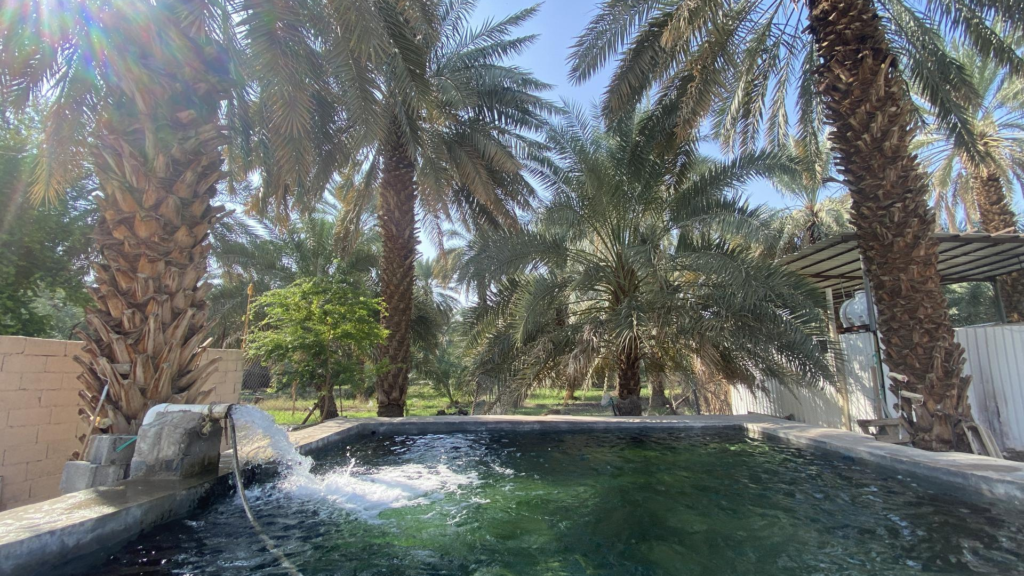
Garden Salman Farsi (RA)
The Garden of Salman Farsi (RA) is a historically significant site located near Madinah, Saudi Arabia. This garden is associated with Salman al-Farsi (RA), one of the most revered companions of Prophet Muhammad (peace be upon him), known for his deep knowledge and wisdom.
Salman Farsi (RA) was originally from Persia and is famous for his pivotal role in the Battle of the Trench (Khandaq), where he suggested the strategy of digging a trench to defend Madinah. His contribution was critical in the success of the Muslim community. The garden is believed to have been a personal gift to Salman Farsi (RA) by the Prophet (PBUH) and is considered a symbol of his devotion to Islam.
Today, the Garden of Salman Farsi (RA) serves as a place of historical reflection, offering visitors an opportunity to connect with the life and contributions of one of Islam’s most devoted companions.
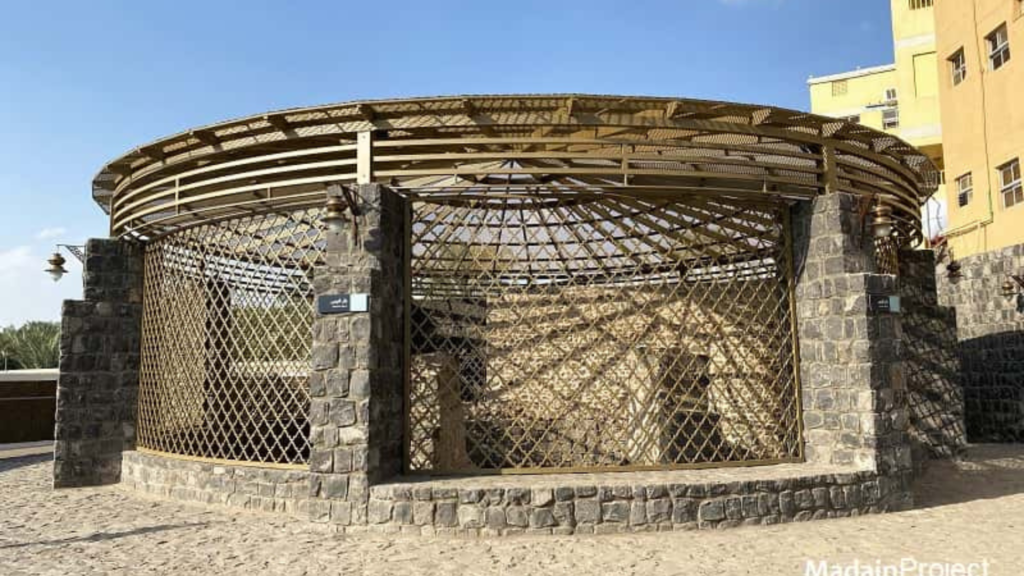
Ghars Well
Gharis Well is a historically significant well located in Madinah, Saudi Arabia. This well is most famous for its association with the Prophet Muhammad (peace be upon him) and his companions during their time in Madinah.
The well is known for its role in the Battle of the Trench (Khandaq), as it was one of the key water sources for the Muslim army during the siege. Despite the challenges they faced, the well became an essential resource for the Muslims as they defended Madinah against the Quraysh and their allies.
Today, Gharis Well stands as a symbol of perseverance and the sacrifices made by the early Muslim community. It is a place of reflection for visitors, offering a connection to the early Islamic struggles and the steadfastness of the Prophet (PBUH) and his companions.
At Zain Trader, we offer Umrah services throughout the year with consistent and competitive pricing. However, please note that prices may vary during peak seasons, specifically Hajj and Ramadan, due to increased demand and changes in regulations.
For all other times of the year, our regular rates apply, and we strive to keep our pricing transparent and up-to-date. Still, in some cases, we may need to adjust prices based on operational costs, availability, or official policy changes.
To ensure you have the most accurate and current information, we recommend checking with our team at the time of booking. Our customer support is available 24/7 to assist with inquiries and confirm service details.
Zain Trader also reserves the right to update, change, or pause any service or pricing if necessary.
Thank you for trusting Zain Trader with your Umrah travel needs. We are committed to providing you with safe, reliable, and professional service throughout your spiritual journey.
